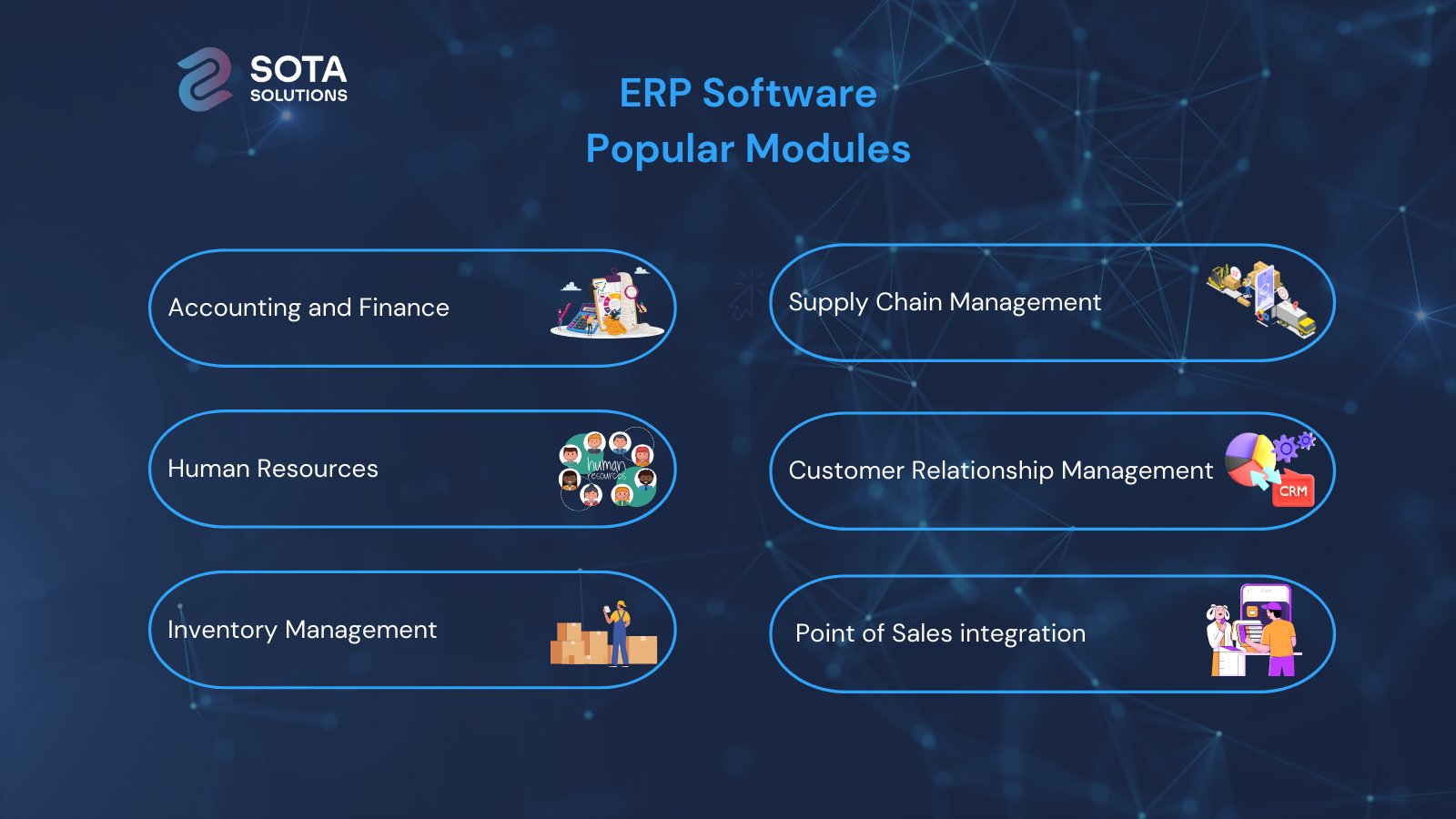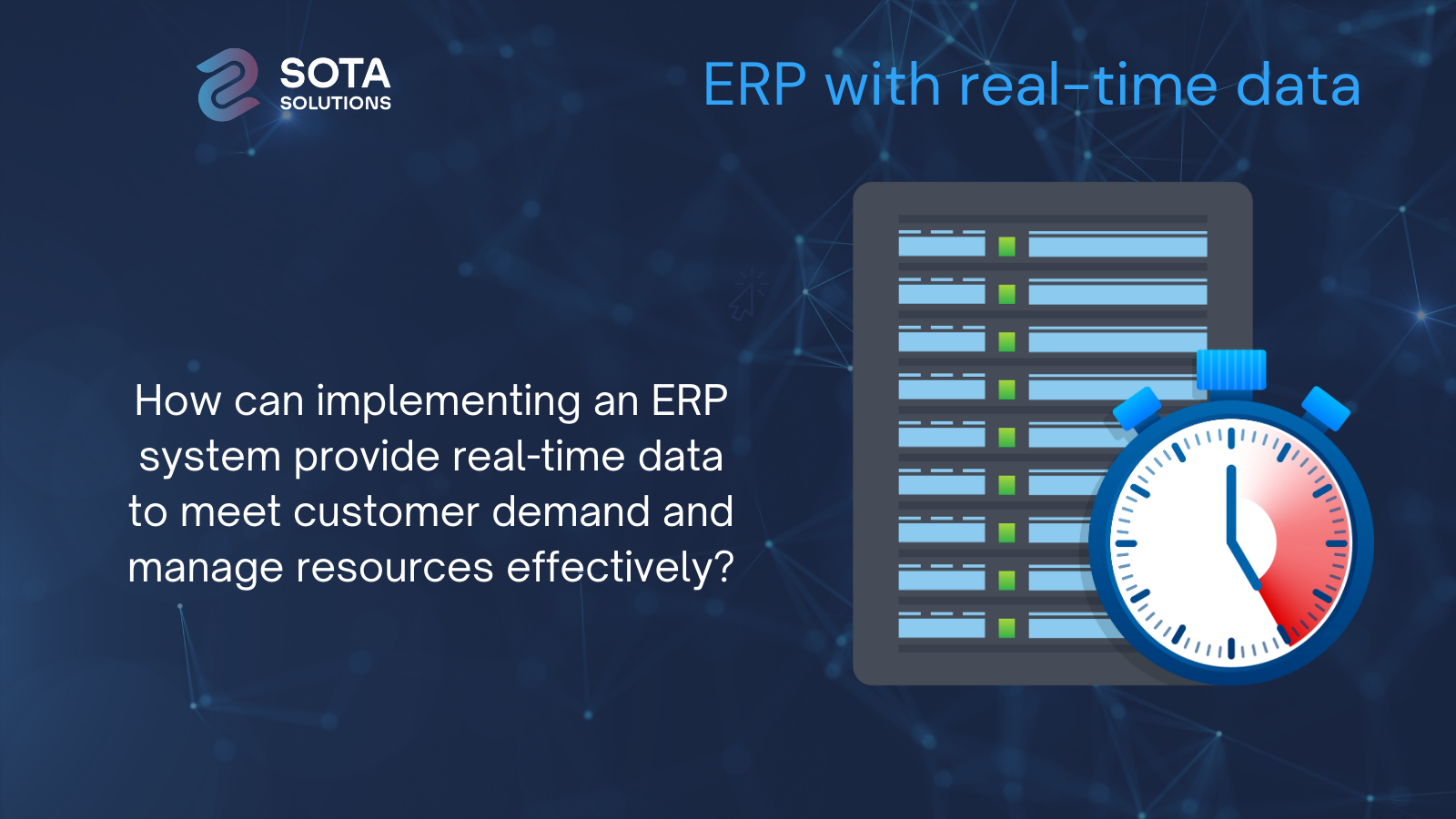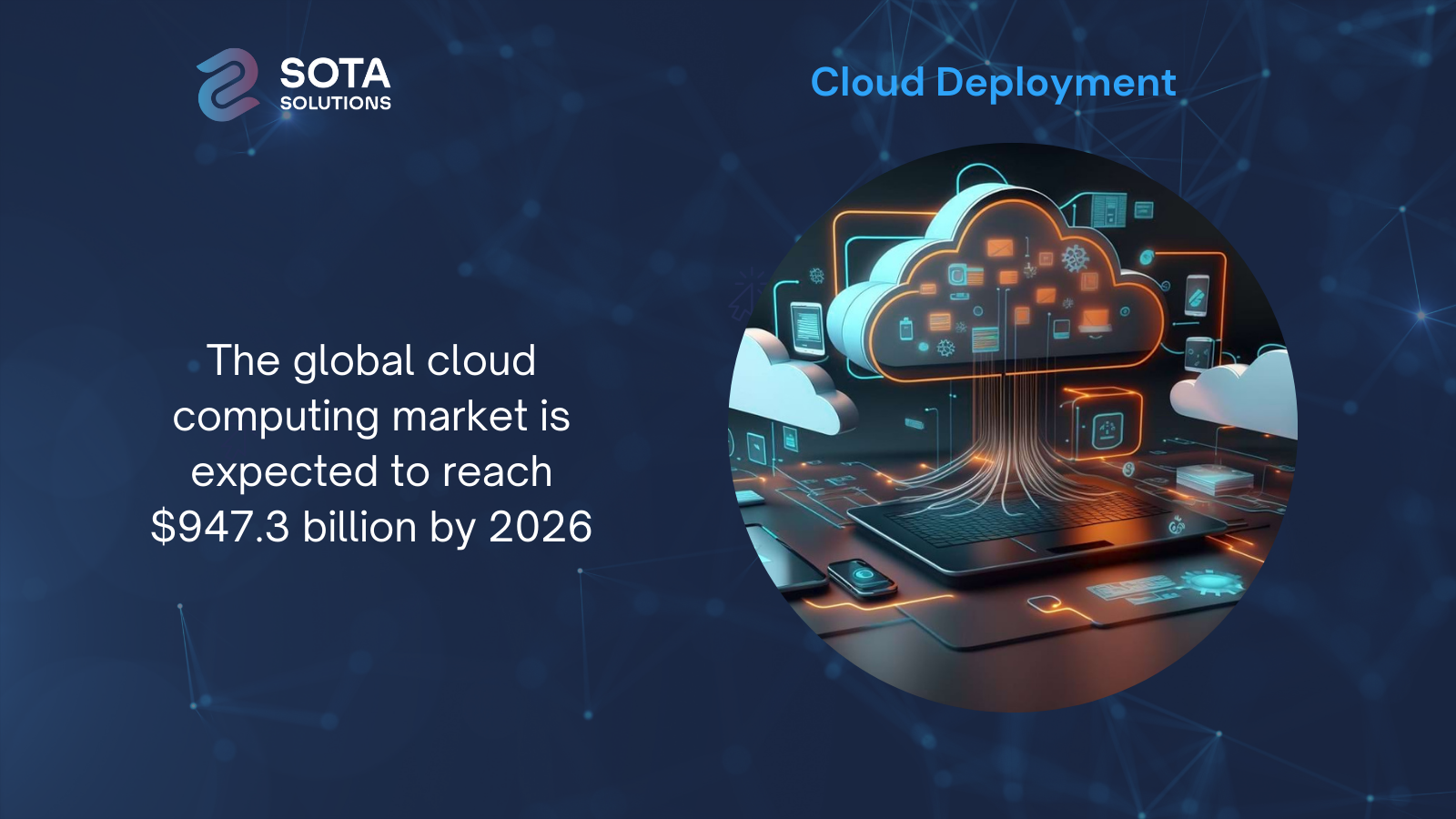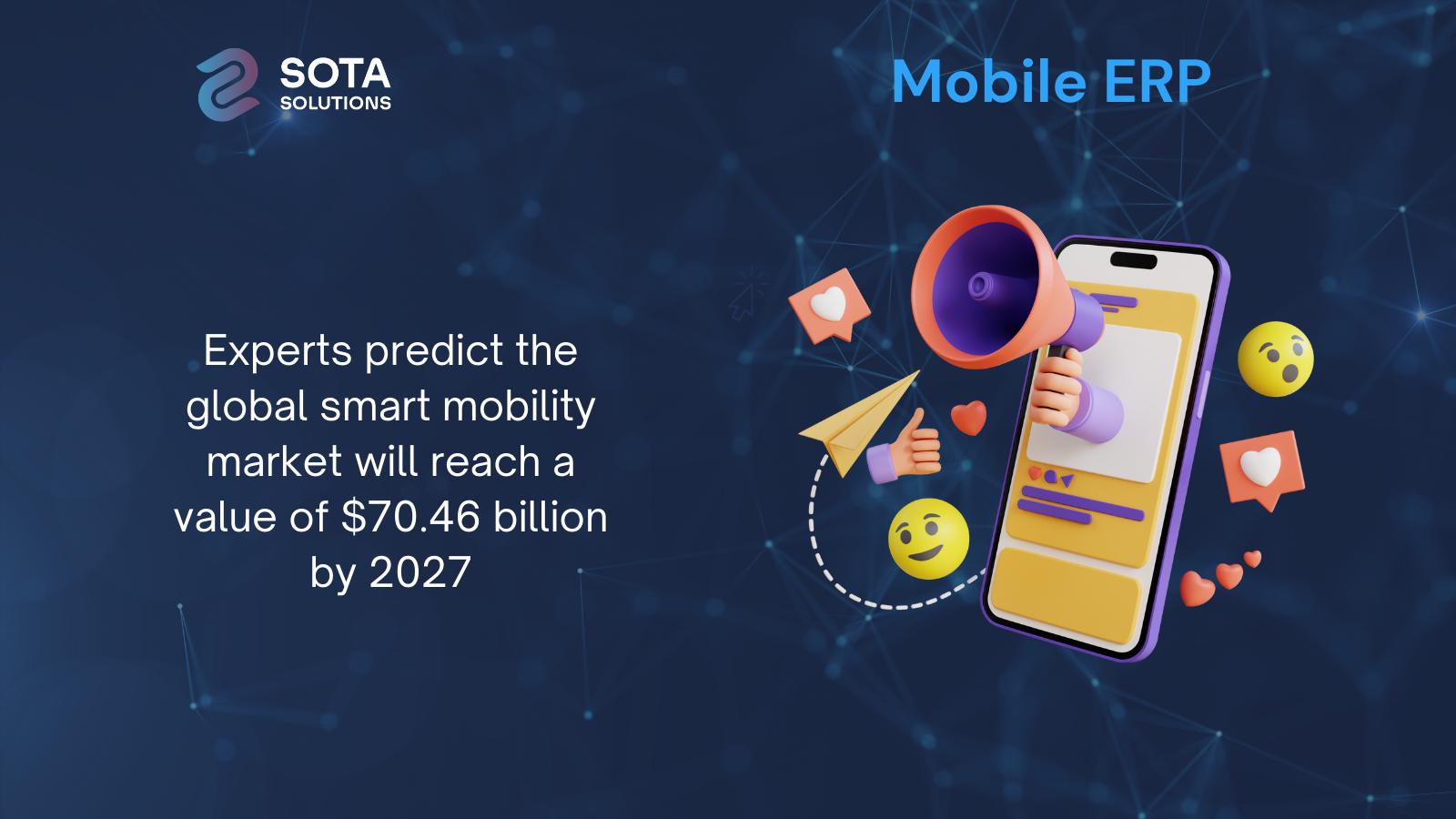The world of business is constantly evolving, and the need for efficient business processes and decision-making has never been greater.
Businesses need to adapt to the new reality and embrace the future of ERP trends to stay competitive. These trends in the ERP industry include a shift ERP On-premise towards cloud-based ERP software, such as Amazon, Google Cloud, CMC, VNG, etc..., plus A.I integration with Big Data, and Industry-Specific ERP. As the business world continues to evolve, organizations need to stay up-to-date with the latest enterprise resource planning trends to remain competitive and efficient in today’s market.
TOP 4 OUTSTANDING ERP TRENDS
1. Industry-Specific ERP
Enterprise Resource Planning (ERP) systems are no longer one-size-fits-all solutions. Various businesses have unique requirements, and as a result, the traditional, pre-designed ERP templates may not suffice.
For instance, financial service companies often require specialized business modules, such as core banking and core insurance, while manufacturing enterprises need additional functionalities for production management, tool and equipment handling, and more. This necessitates the development of custom ERP solutions that can be tailored and optimized for specific industries. Instead of adopting a one-size-fits-all ERP system, modern businesses are turning to ERP software providers capable of designing systems specifically tailored to their respective industries. This approach allows them to better address the unique demands and business processes of their specific sectors.

>>> Some highlights benefits of Customized ERP Systems:
Customized ERP systems provide the flexibility to adapt to the unique needs of an industry, ensuring that critical business functions, like core banking for financial services or production management for manufacturing, are seamlessly integrated. These tailored solutions enable businesses to enhance efficiency and productivity by streamlining their operations and aligning with industry-specific processes.
2. ERP with Real-time Data
The biggest step in the evolution of ERP is the usage of in-memory computing (IMC) technologies. Thanks to that, ERP systems can analyze and process large amounts of data in real time. Through human-machine interaction, the ERP system can determine which processes should be automated and which should be developed. It allows employees to become more productive.

ERP systems interfaces should transfer important information to those employees who need it at the moment, at any time, and anywhere. So in this way, the company’s management can make more effective decisions. It gives businesses a competitive edge in the digital economy, as they can quickly and flexibly adapt to emerging obstacles in real time.
3. Cloud Acceleration
The COVID-19 pandemic has accelerated the shift towards online business processes, prompting a rapid transformation of the business landscape. As a result, cloud solutions have become increasingly popular, providing organizations with the agility they need to keep up with new trends of ERP.
The concept of on-premise ERP needs to be updated. Today it’s being replaced by a cloud-based ERP that ensures accessibility, flexibility, and functionality. Thanks to migration to the cloud, it became possible to maintain the required volume of traffic and store data, providing access from any device and location.
>>>Cloud-based ERP systems allow companies to:
4. Moving into Mobile ERP
With the popularity of smartphones, ERP on mobile platforms is becoming an inevitable trend.
ERP mobile applications allow users to access and manage ERP data from anywhere, on any device, without having to be physically present at the factory. The interface of the ERP system on the mobile platform is optimized to be as streamlined as possible, allowing managers and employees to access and operate easily and quickly.
Besides, using ERP on mobile platforms also helps speed up the problem-solving and problem-solving process. Employees can report problems directly from the factory scene, send images or data related to the problem to managers to receive immediate support and handling instructions. This not only saves time but also provides a better experience for customers and employees, ensuring business processes run smoothly and efficiently.
What’s Next for Business? Future of ERP
Businesses must proactively assess their current and future ERP needs, considering the shift towards cloud-based solutions for improved data accessibility, cost reduction, and scalability. Future-proofing includes integrating A.I. and Machine Learning, automating processes, and fostering a data-driven culture.
Mobile accessibility and IoT integration are vital for evolving ERP systems, offering real-time data analysis and decision optimization. Lastly, safeguarding sensitive data against cyber threats through security protocols and secure ERP systems is crucial.
To achieve competitiveness and adapt to an increasingly changing market, businesses should grasp, anticipate and apply these trends, which will be a decisive factor for the sustainable development and success of a business. future business. Join Sota Solutions to follow the latest news from the market.

